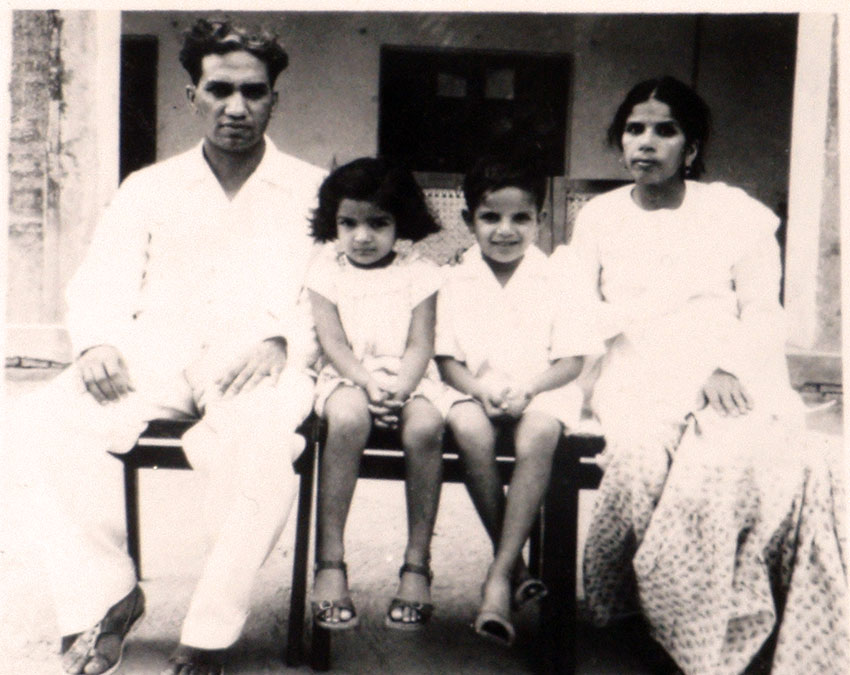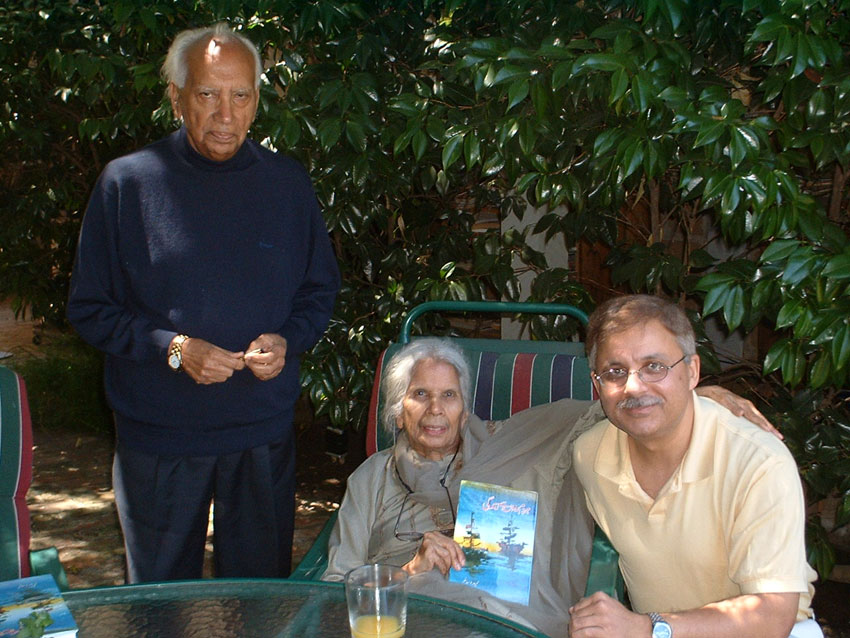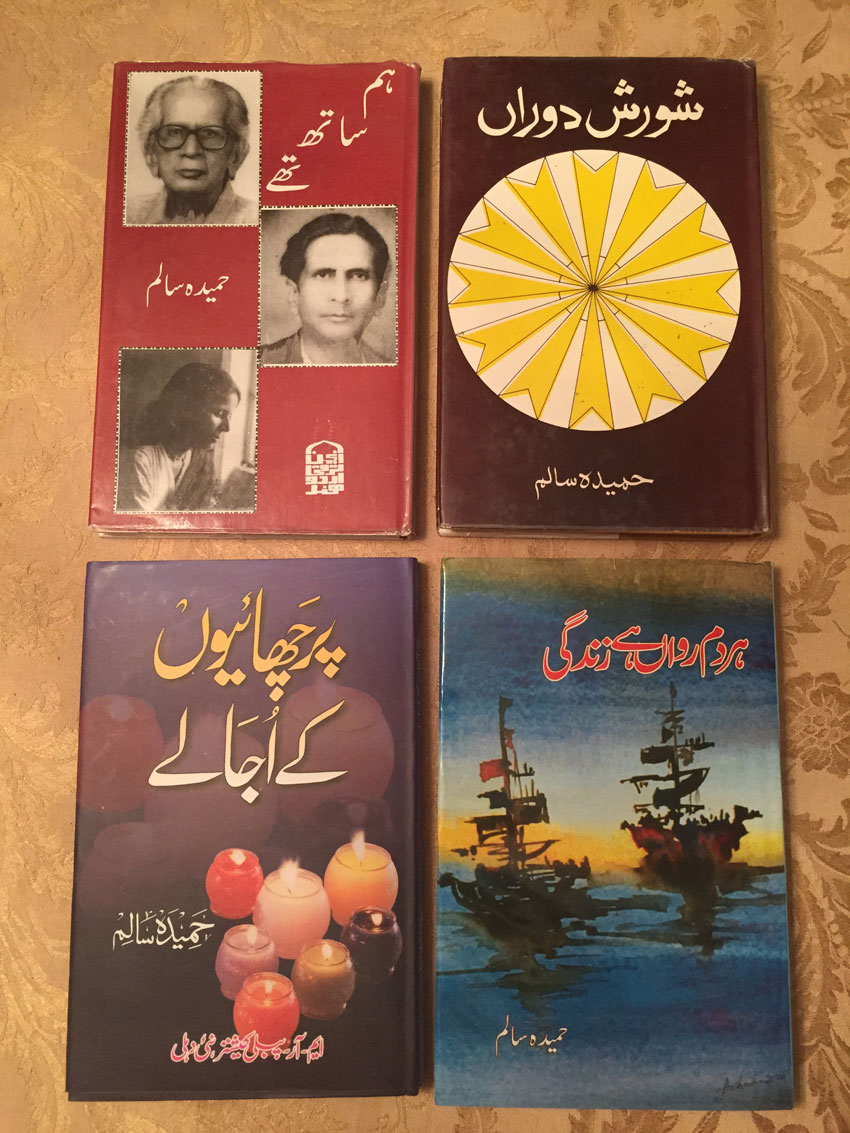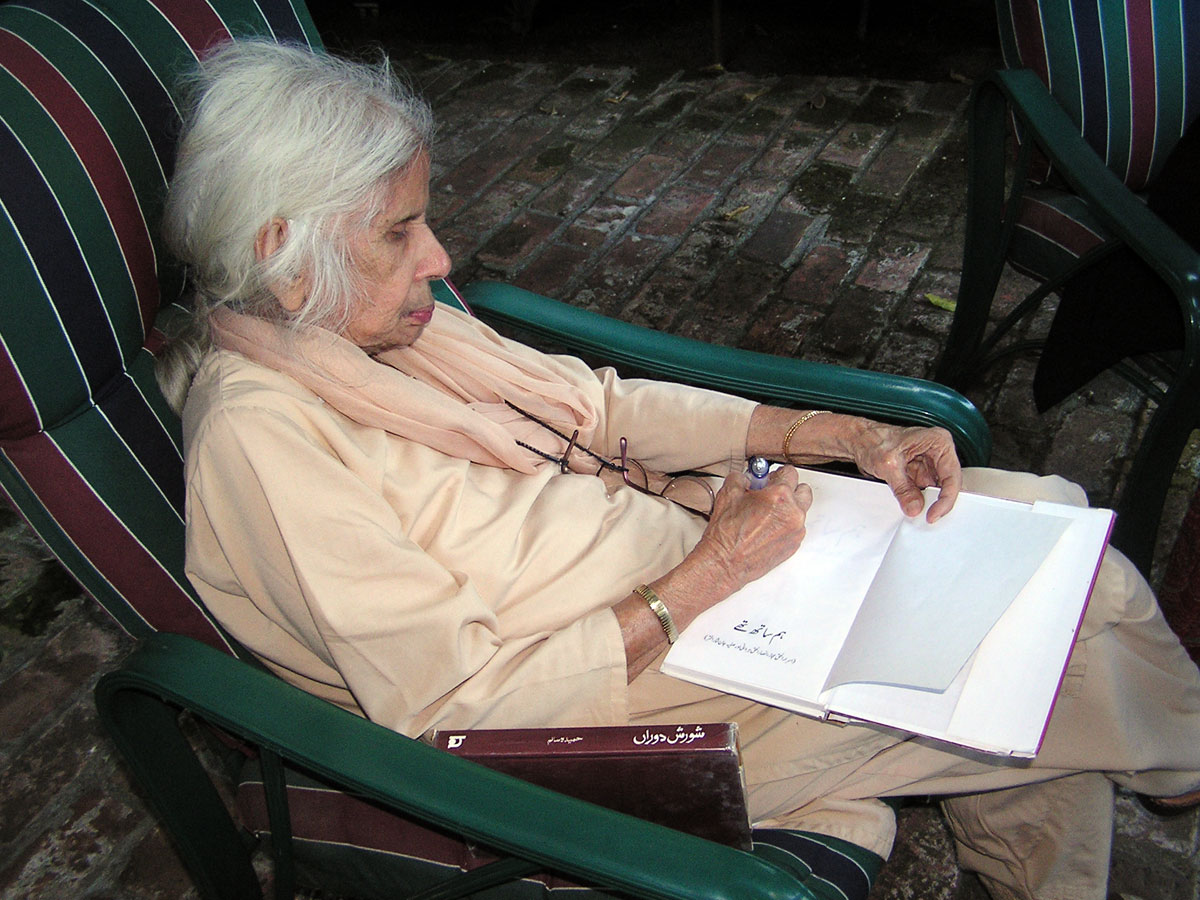REMEMBERING HAMIDA AAPA
Hamida Salim signing her book. (Shaheer Khan)
Eminent Urdu writer Hamida Salim passed away August 16, at the age of 93, at her home in Delhi. My interactions with Hamida Aapa began about 10 years ago during one of her annual summer visits to Bay Area, to see her son, Irfan Salim. After our first meeting, she called me on her subsequent summer visits and left a message in her very sweet voice, “Shaheer Mian Mai Bay Area May Aa Gai Hun. Aap Se Aur Humaira Se Mulaqat Kab Hogi,” writes Shaheer Khan.
Laid to rest at Jamia Millia Islamia graveyard, Aug. 18, Hamida Salim is survived by her husband Abu Salim, son Irfan Salim, who lives San Francisco Bay Area, and daughter Sumbul Salim. Born in 1922 in a Zamindar family of Rudauli in Barabanki district of Uttar Pradesh, she did her B.A. from I.T. College, Lucknow, and M.A. in Economics from the Aligarh Muslim University in 1947. She took her diploma and Masters in Economics from the University of London. She taught both in the Women’s College and Economics Department at Aligarh Muslim University in the early 1960s before moving to Delhi where she taught at Jamia Millia Islamia.
Hamida Salim’s death (Hamida Aapa as we used to call her) has come as shock to literary world in general and Aligarh fraternity in particular.

While she was visiting San Francisco Bay Area, we tried to visit her at her son’s house, depending on her availability. During our last meeting, some 4 years ago, she mentioned that she may not come back here due to their old age and poor health (hers as well as Salim Sahab). She always appreciated that her son will make sure that his parents travel in comfort with a stopover in Europe for several days but still the long journey to San Francisco was too much for them at this age.
It’s hard to explain our feeling every time when we met her. Amazing human being, she was more than just Majaz’s sister. She was sophisticated and extremely hospitable and very loving person. We enjoyed every minute of her company and always learned something new about the Aligarh, Lucknow and of course, Rudauli (her home town and birth place) of her days. It was an honor to be with her.

Our conversations would always include Asrarul Haq Majaz (renowned Urdu Poet), Safia Akhtar (Urdu litterateur, wife of Jan Nisar Akhtar and Javed Akhtar’s mother) and Ansar Harvani (veteran freedom fighter, parliamentarian and Congressman). She had an amazing memory. Her autobiography “Shorish-e-Dauran” (Turbulent Times) published in 1995 covers her Aligarh days. Her second book “Ham Saath The” (We were Together) consists of her write-ups about her siblings, and has not received the attention it deserves as noted by Naved Masood Sahab.
Several people whose opinion is respected in Urdu world feel that Hamida Apa’s article on Majaz, titled “Jaggan Bhaia” is possibly the best tribute from a sister to her brother they have seen. Majaz was known within the family as “Jaggan” because he would go to sleep very late. Her other two books, “Hardam Rawan Hai Zindagi” (Life is Constantly on the Move) and “Parchhaiyon Ke Ujale” (Lights of Shadows) are novels. I am privileged to have all four book signed by her. She gave us the latter two as gift.
According to published reports, she was working on two other books “Ab Aur Tab” (Now and Then, collection of short stories and a few articles, that compare the times gone by with the present) and “Beeti Huee Yaaden” (Remembrance of the Things Past, Memoir).

Over the years I convinced her to write articles for our Aligarh Magazine. Despite her old age and poor health she agreed to my request. At the end she would say, “Shaheer Mian Aap Ki Zid Ne Majboor Kar Diya Likhne Ke Liye.” I also requested her to read one of her articles on Majaz, that she wrote at my request, for video recording.
She was an accomplished author in her own right, had her own identity and enjoyed her own place in Urdu literature, but for us, the Aligarians, who are so passionate about ‘Tarana-e-Aligarh’ and our love for Majaz; she was our link to Majaz and source of firsthand information about his life and work.
That link is broken and gone forever. We will miss you Hamida Apa!


